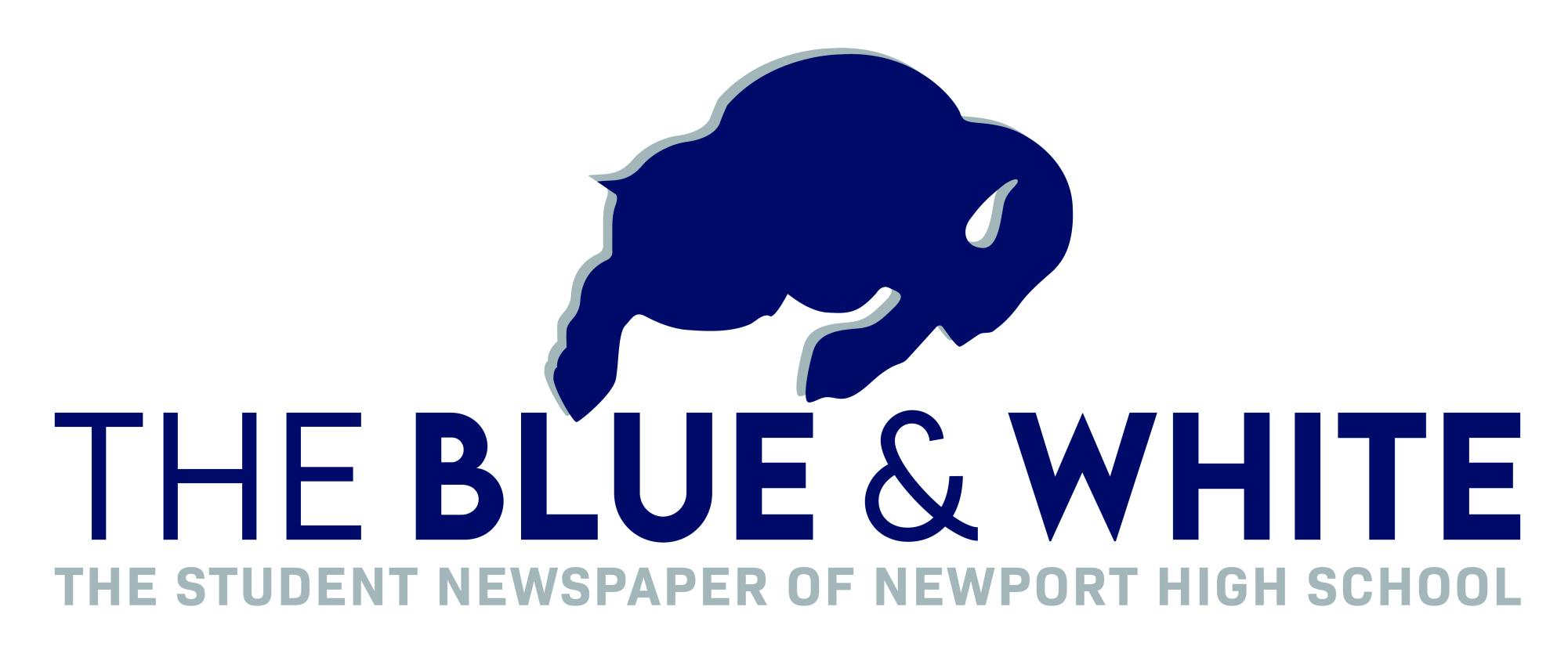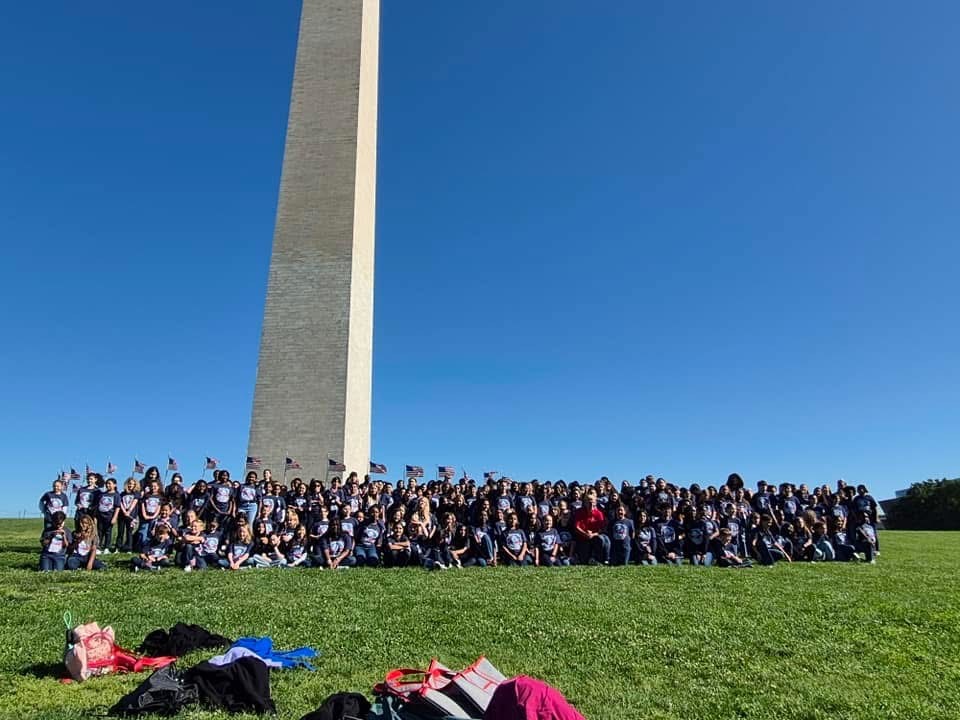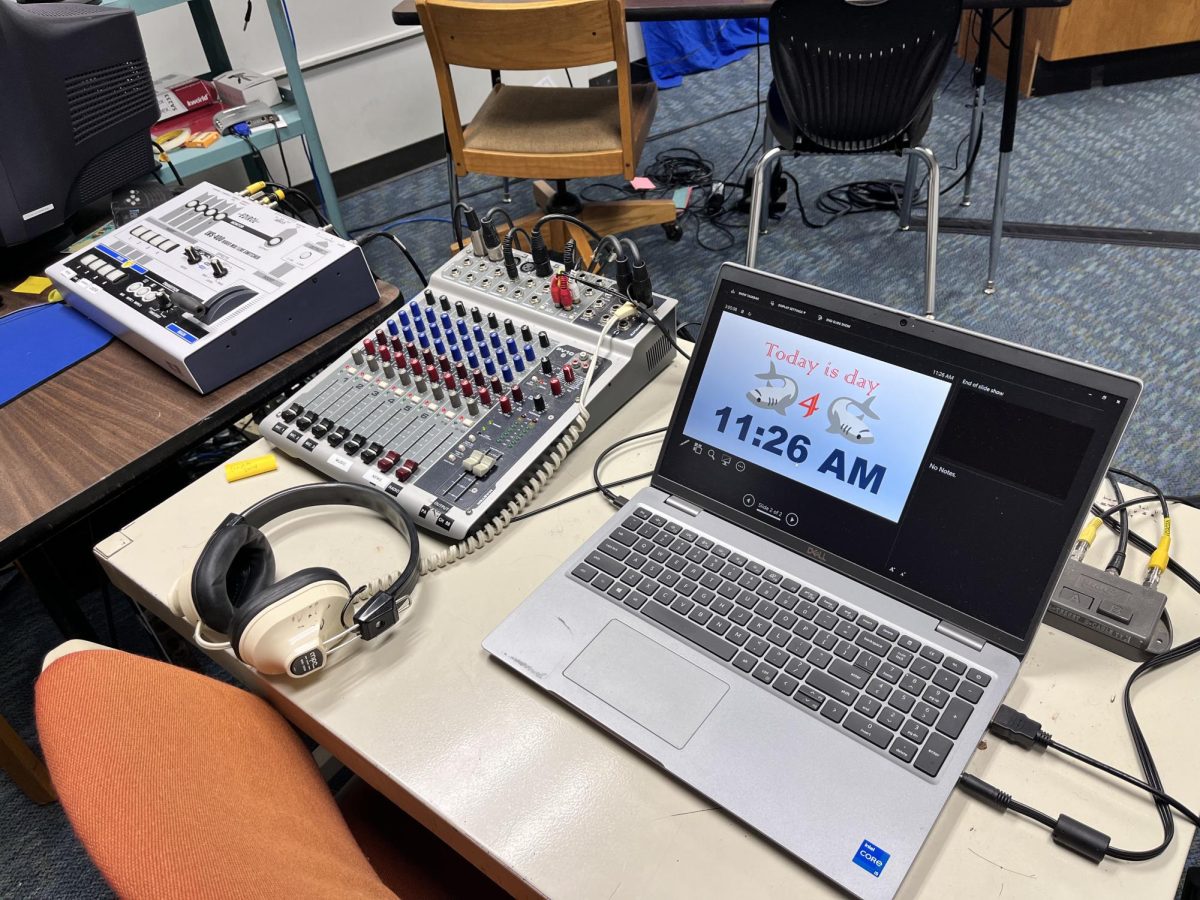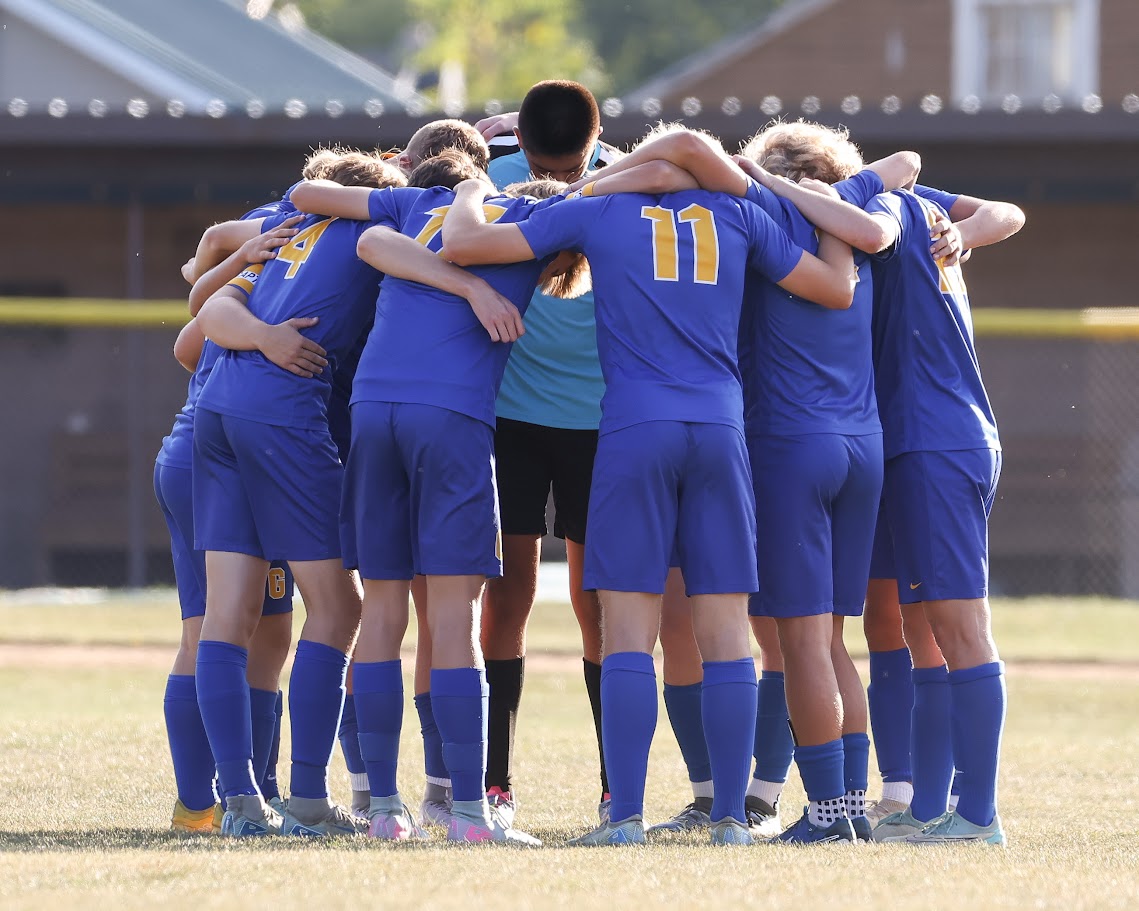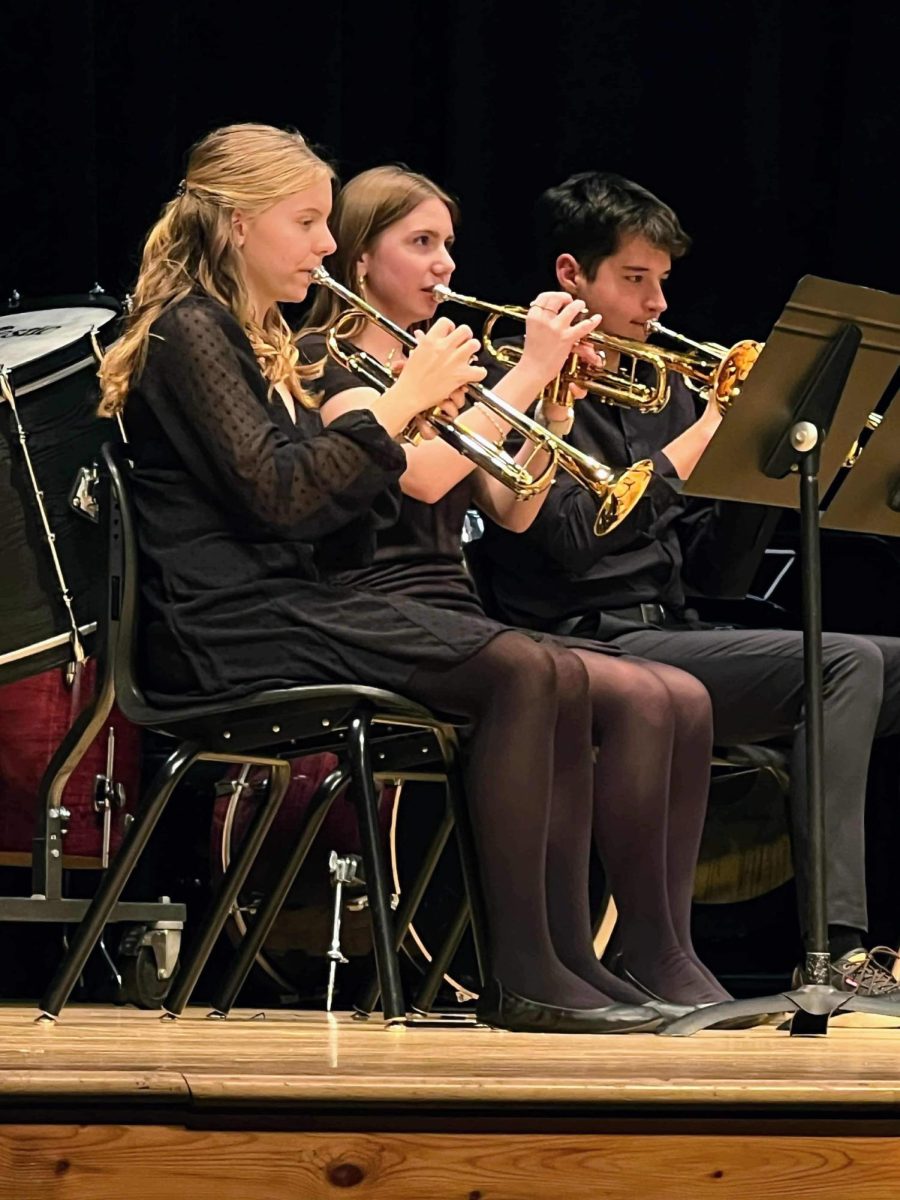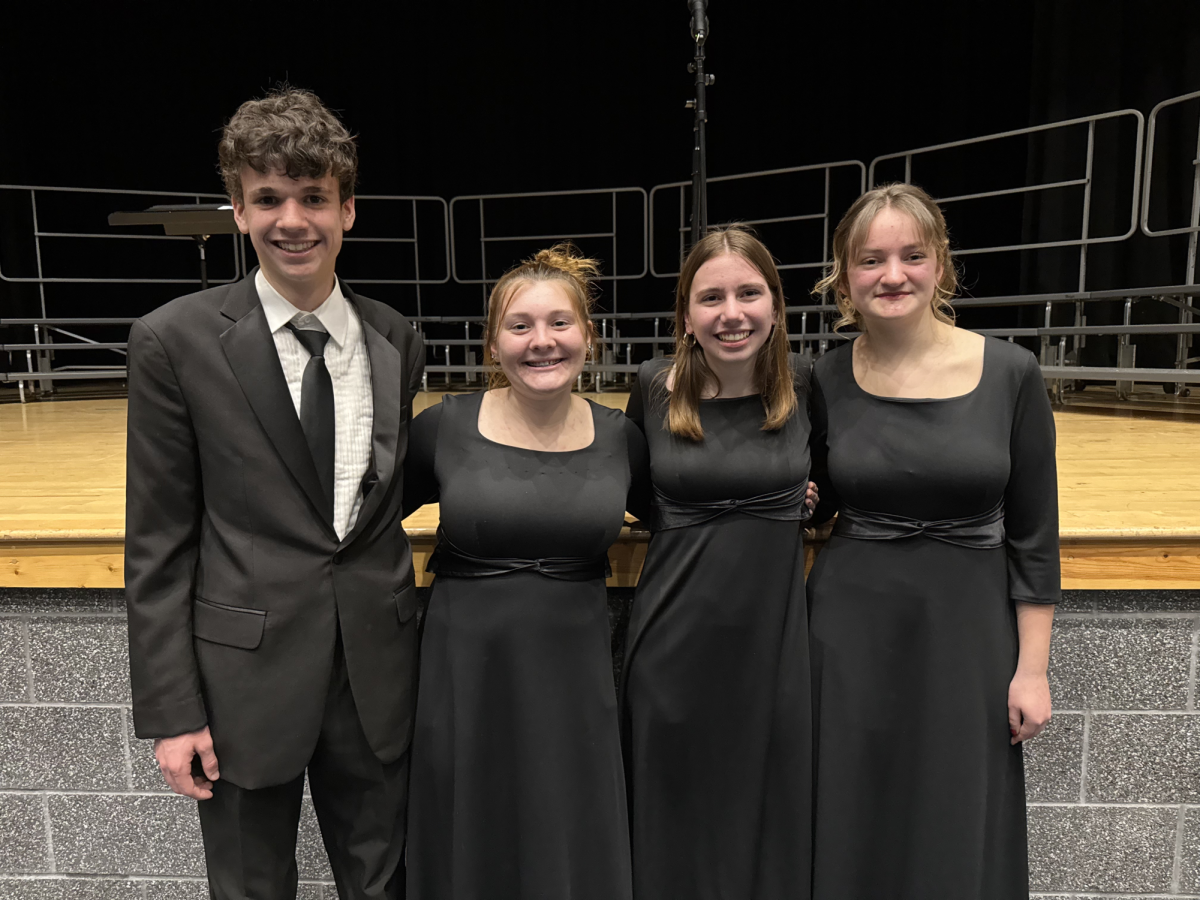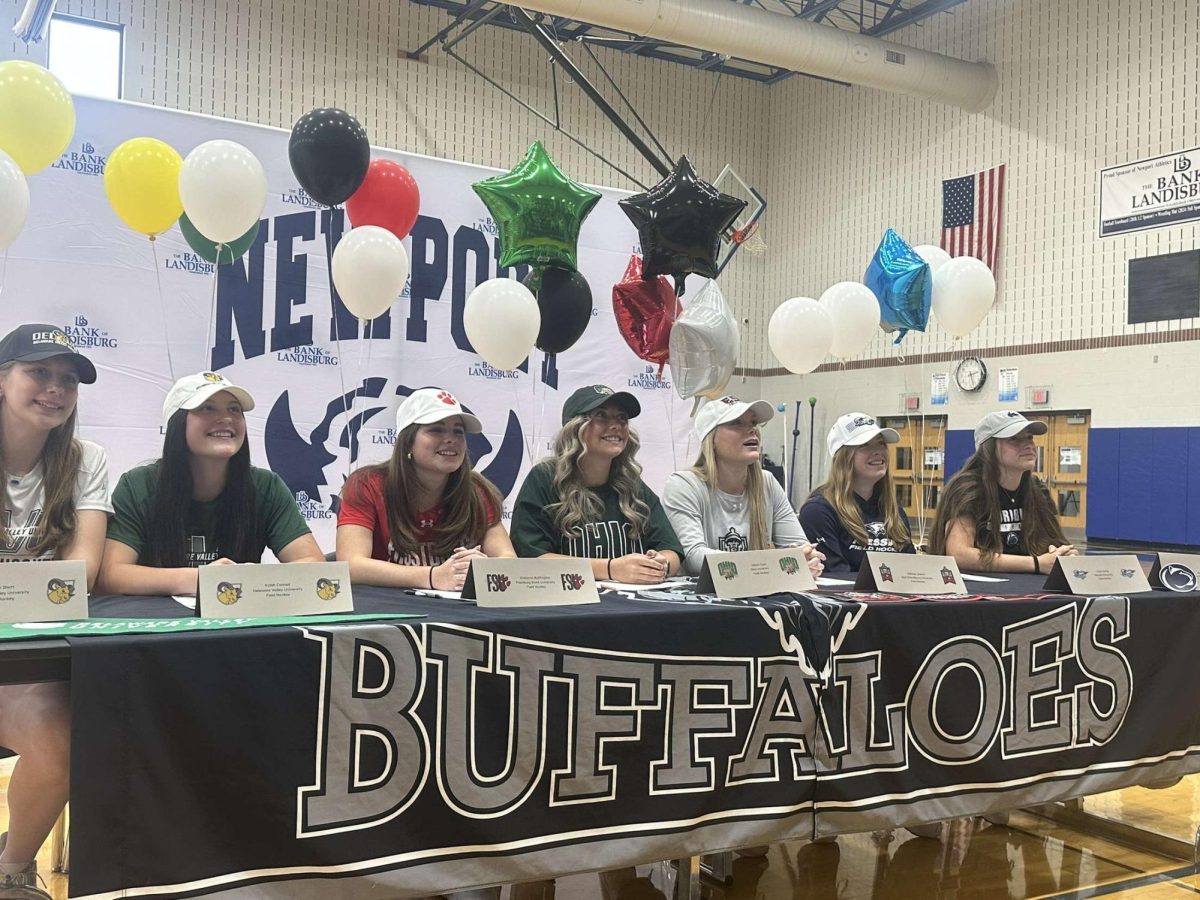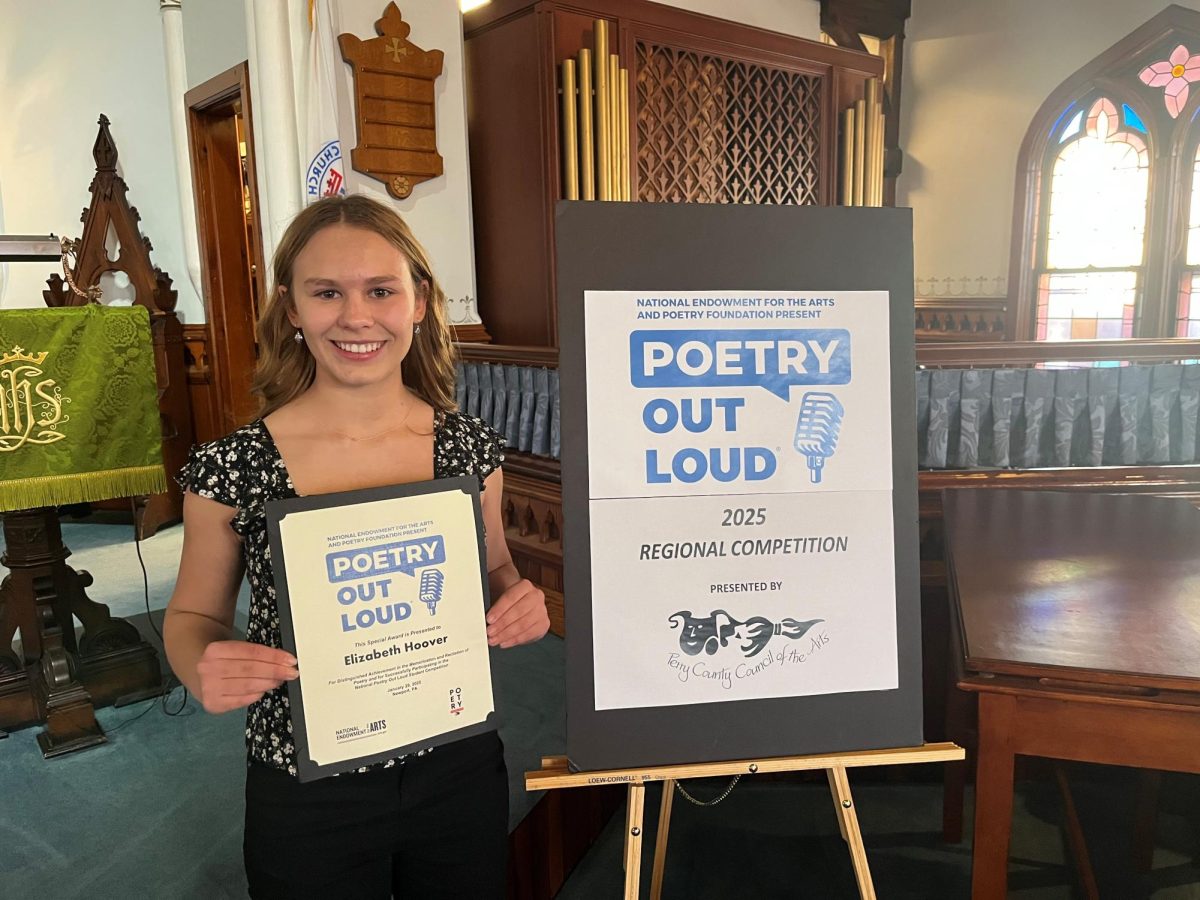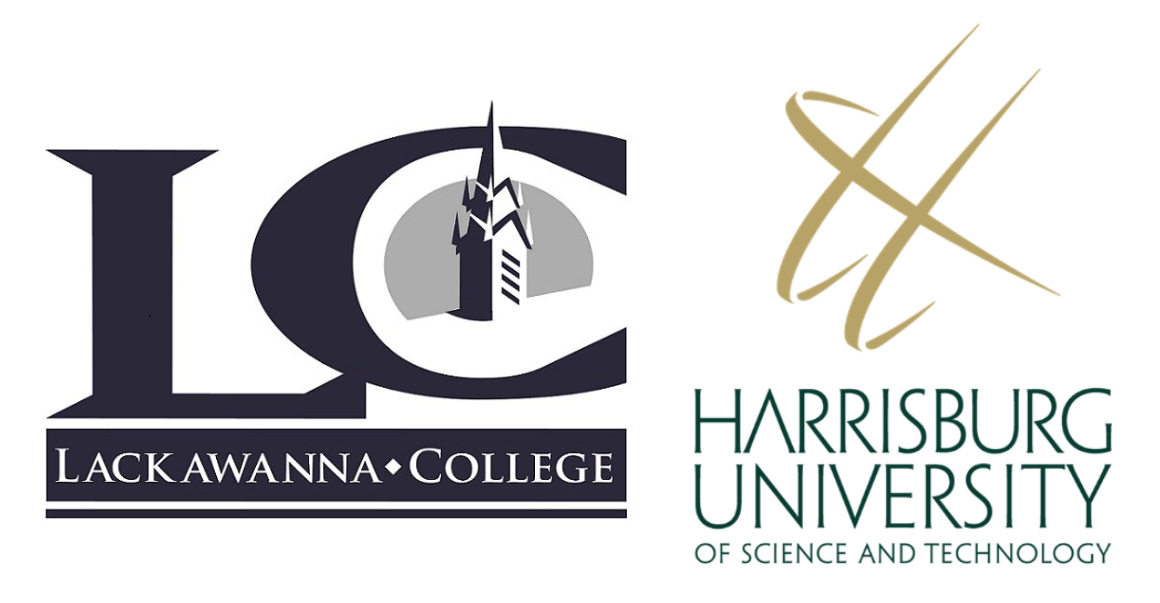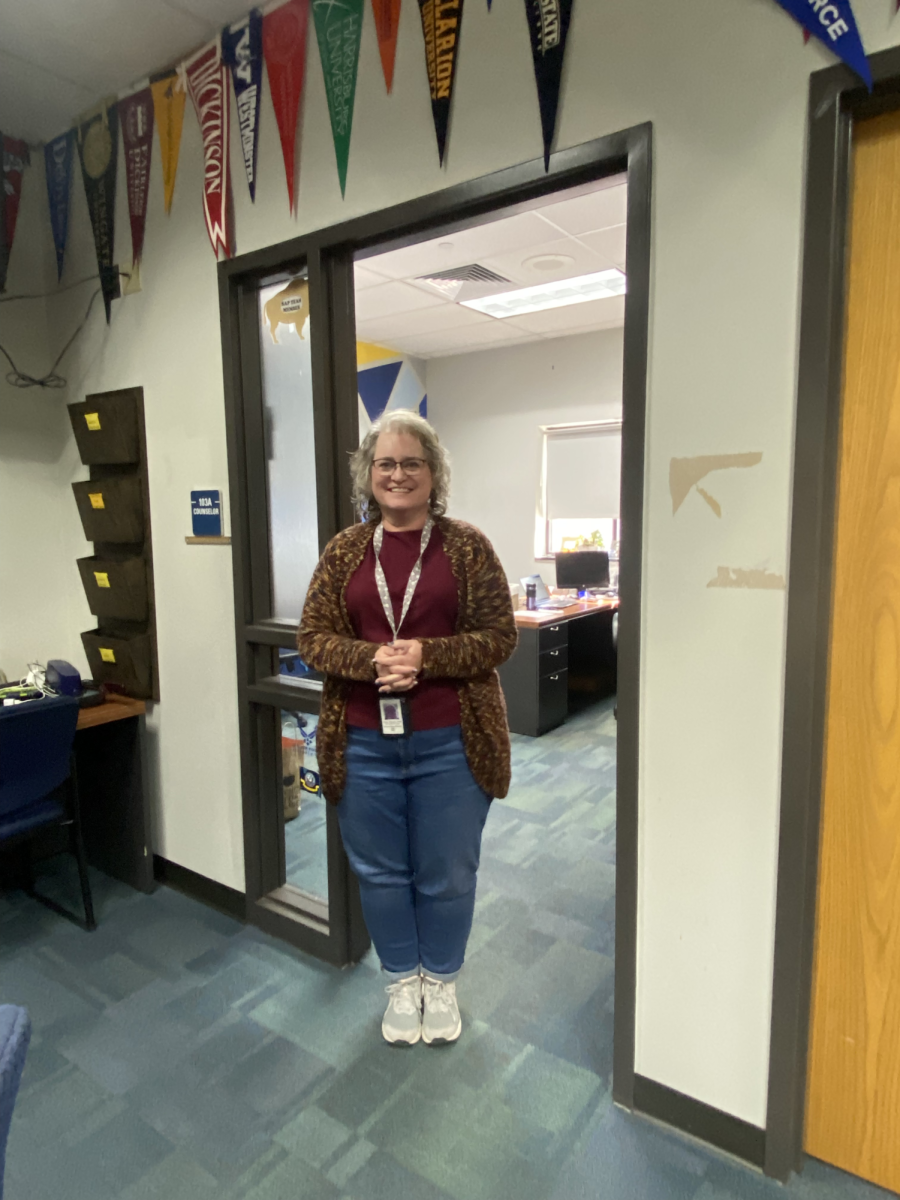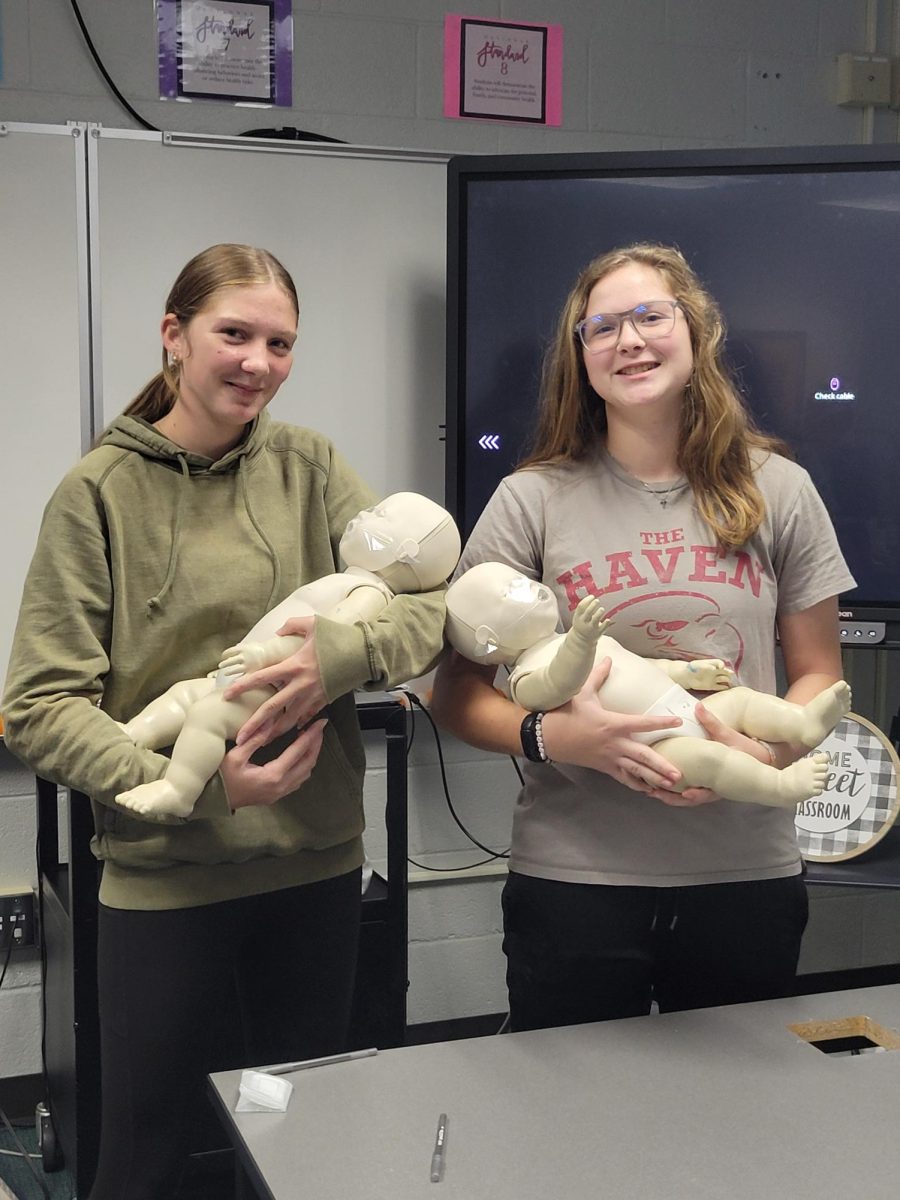Newport offers its students a variety of alternative education options. From the NCAP online program to participation in the Cumberland-Perry Area Vocational Technical School, or Vo-Tech, students have many ways that they can gear their education more towards their aptitudes and interests. More recently, students can also pursue dual enrollment opportunities through various local colleges, such as Harrisburg Area Community College, or HACC, and participate in co-op opportunities.
This year, the curriculum built on this to include English courses from Harrisburg University (HU) that award students college credits for completion. Further, the AP psychology class and various Agriculture Science classes have the exciting opportunity to receive college credit through Lackawanna College.
Newport and its teachers went through a rigorous credentialing process as an application to teach Harrisburg University-sponsored classes. At a faculty meeting in April 2023, a representative from the university, Alexander Gibson, met with Newport staff and administration to outline the requirements on Newport’s behalf to teach for HU.
By the end of the application process, two English department teachers, Mrs. Chrstine McLaughlin and Mrs. Angela Stewart, became eligible to teach HU classes. Mrs. Stewart took on the responsibility of teaching the HU-sponsored classes in addition to her typical senior English classes.
Mrs. Stewart is teaching four sections of senior English classes during two periods. Students in the two honors senior English classes who signed up to receive college credit from HU for completing the classes will be awarded three English 105 College Composition credits through HU, the standard for a semester-long college English course.
This year, there was not enough student interest in the AP English class at Newport, so Newport did not offer this course. College credit through HU by means of Mrs. Stewart’s senior English classes provides an alternative to college credits received through the College Board-sponsored AP Literature exam in May, which is the typical exam that corresponds to the AP English class at Newport.
Senior English is not the first course that HU class to be included at Newport. Business teacher and media specialist Mrs. Amy Wagner has taught HU classes at Newport since 2019, including introduction to digital design, principles of business management, and entrepreneurship. Wagner went through a similar credentialing process as Mrs. Stewart and Mrs. McLaughlin in 2019 to be eligible to teach the courses.
The implementation of HU-sponsored English courses broadens the range of Newport classes eligible for college credit through HU. Being a typical part of the high school curriculum, students have given more attention to HU English at Newport than the long-provided business courses. The business courses are still valuable opportunities for students to gain college credit in high school even though the subject area is less popular.
For juniors and seniors taking social studies teacher Mr. Steve Barlup’s AP psychology this year, Lackawanna College is offering three Psychology 105 Intro to Psychology college credits, the standard for a semester-long freshman year college psychology course, simply for passing the course with a 70% or higher. Lackawanna College will also offer the opportunity to receive college credits for the AP US history class which Mr. Barlup teaches on alternating years with AP psychology.
Students may otherwise receive college credit if they take either the AP Psychology exam or AP US history exam in May that is associated with an AP class. Lackawanna College’s opportunity subverts the test and allows students to receive credit just for passing a course by Lackawanna College standard. Philip Campbell, a representative from Lackawanna College, came to the school in November to advertise the opportunity to the students in Mr. Barlup’s AP psychology classes.
In addition to AP psychology, Lackawanna College is offering the opportunity to receive college credit for various agriculture classes taught by agriculture teacher Mrs. Natalie Barkley. Ag mechanics, large animal science, and horticulture are all three Newport agriculture classes through which students may receive credits from Lackawanna College.
Through the ag mechanics class, students would receive three AGR 105 Basic Ag Maintenance credits; through large animal science, students would receive three AGR 130 Sustainable Livestock management credits; and through horticulture, students would receive three AGR 110 biological pest management credits. These courses are not associated with AP exams, so this is a unique opportunity for students in these classes to receive college credit through the courses.
Neither the HU nor the Lackawanna College programs are free. The courses are treated like dual-enrollment opportunities and cost 300 dollars per class at each school. Compared to the $98 price of an AP exam, however, this is not a significant upcharge, especially considering that most colleges only reward credit for the AP exam if a student gets a score of three, four, or five, with some colleges accepting only four or five.
On top of this, the average cost of a college course, which awards three credits for passing, is $1,170 according to the Education Data Initiative. Both the HU and Lackawanna College opportunities are more than three times less expensive than this, making them both a more attainable and more affordable option overall. Furthermore, Lackawanna College will refund the cost of courses taken in high school if the student who took the course attends Lackawanna College full-time after high school.
“I think it’s a fantastic opportunity for students to earn the credits in high school for classes such as psychology or the ones offered by HU,” commented Mr. Barlup. “I think it’s great…for the students to be taking the classes while in high school with the teacher who’s teaching the advanced course, rather than waiting for a high stakes test at the end of the year,” he explained in reference to the AP exams.
These offers from colleges provide even more opportunities for college-bound students to prepare for their education after high school and give students a cost-effective alternative to classes they may not want to take at their four-year institution. Getting some classes out of the way in high school gives students the liberty to pursue classes in college beyond what they learned in high school or pursue other classes in college that they have more interest in.
